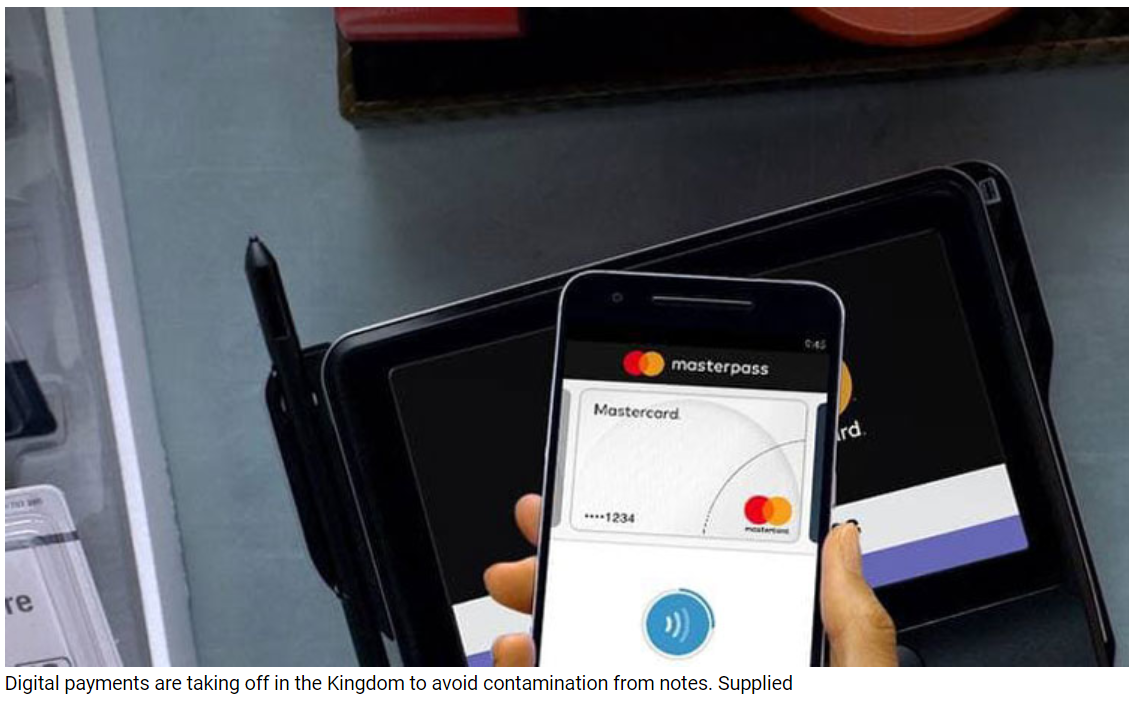Cambodia: Digital payments the ‘new normal’ during lockdowns
With Cambodia registering hundreds of new COVID-19 cases daily, the public is increasingly turning away from cash payments to avoid face-to-face interactions.
Last week, the Microfinance Association of Cambodia (MAC) and the National Bank of Cambodia (NBC) discouraged the use of physical currency to help curb the spread of the pandemic – “Banking and financial institutions encourage customers and the public to pay electronically to avoid holding banknotes directly as it could pose a risk,” MAC said.
“Cashless payments on Nham24 overtook physical transactions for the first time in recent days,” Simon Lam, head of marketing for Nham24 told Khmer Times.
A total of 55 percent of all transactions on Nham 24 this month have been cashless while digital payments accounted for 46 percent of payments in March and 39 percent in Feb.
“We have seen rapid growth of cashless payments on the platform. Cashless payments are not only safer in terms of preventing germs from being passed on, but come with additional benefits,” Lam said.
Payments through Advanced Bank of Asia and credit cards had seen the most robust growth, Lam continued, while the firm recently partnered with digital payment firm PiPay to offer free delivery to customers in addition to cashback services.
Nham24 conducted a user survey earlier this month that found user attitudes are starting to shift regarding pre-paid digital payments. The firm found that rather than a lack of trust in the ecosystem, the primary reason that people avoid digital payments is because they find the plethora of payment providers to be overwhelming and the registration process complicated.
“Driving cashless acceptance will continue to remain a core growth driver for Mastercard even as societies adapt to a new normal,” said Winnie Wong, country manager for Mastercard in Cambodia, Laos and Myanmar.
“Mastercard’s unwavering commitment to its mission has taken on a new urgency and importance as COVID-19 highlights the need for contact-free environments and experiences,” she noted.
Mastercard’s Safety and Security Index 2020 found a rise in positive sentiments around multiple forms of digital payments in ASEAN. According to the report, since 2015, ASEAN consumers’ confidence had increased by 42.2 percent when shopping online and 31.37 percent when making in-store purchases.
“However confidence and security of cashless payments continues to be high in emerging markets in Cambodia. That is why we are actively working across Southeast Asia to educate consumers about the safety and reliability of digital payments while continuing to implement innovative solutions that make payments secure for both merchants and consumers,” Wong said.
Mastercard has introduced a four-pronged approach to foster payments and a digital economy – doubling down on digital-first solutions, securing payments, enabling small and medium-sized enterprises to get digital and adding additional support for partnered banks.
“There will be greater efforts to accelerate the digitalisation of transactions including the issuance of digital-first cards, virtual cards, pre-paid and debit cards.
ACLEDA Bank Plc – one of Mastercard’s partner banks – seized on the pandemic to increase its digital services. The firm said it would introduce more than 50 new banking self-service centres across the Kingdom this year.
The centres will allow the users to perform usual tasks available at automated teller machines and even open new bank accounts.
Source: https://www.khmertimeskh.com/50845281/digital-payments-the-new-normal-during-lockdowns/


 English
English




